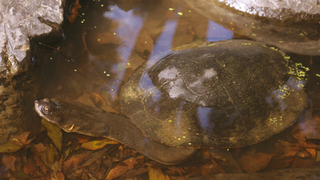Life's Little Mysteries: Science questions, answered
Latest about Life's Little Mysteries

How common is it to have extra bones in your skeleton?
By Charles Q. Choi published
Adult human bodies typically have about 206 bones. But is it possible to have more?

How many holes does the human body have?
By Kit Yates published
You might think that the human body has many holes, but that number shrinks when you stop to consider what counts as a hole.

Is the sun really a dwarf star?
By Charles Q. Choi published
Our sun is huge, at least compared to Earth and the other planets. So is it really a dwarf?

Why is Venus so bright?
By Deepa Jain published
The "morning star" is bright because of several factors, including having an atmosphere filled with sulfuric acid.

What's the fastest a human can grow?
By Ashley Hamer published
Humans grow tall in spurts, but what's our fastest period of growth?

Can a turtle tuck its head all the way inside its shell?
By Emma Bryce published
Turtle shells evolved over the course of 300 million years, but self-defense wasn't the initial driver, researchers think.

How are 'traumatic tattoos' made, and do you have one?
By Abby Wilson published
Traumatic tattoos aren't like regular ones, and they often involve pencils.

What was the loudest sound ever recorded?
By Clarissa Brincat published
Determining the "loudest recorded sound" depends on how you define sound and on which measurements you choose to include.
Get the world’s most fascinating discoveries delivered straight to your inbox.
 Live Science Plus
Live Science Plus







